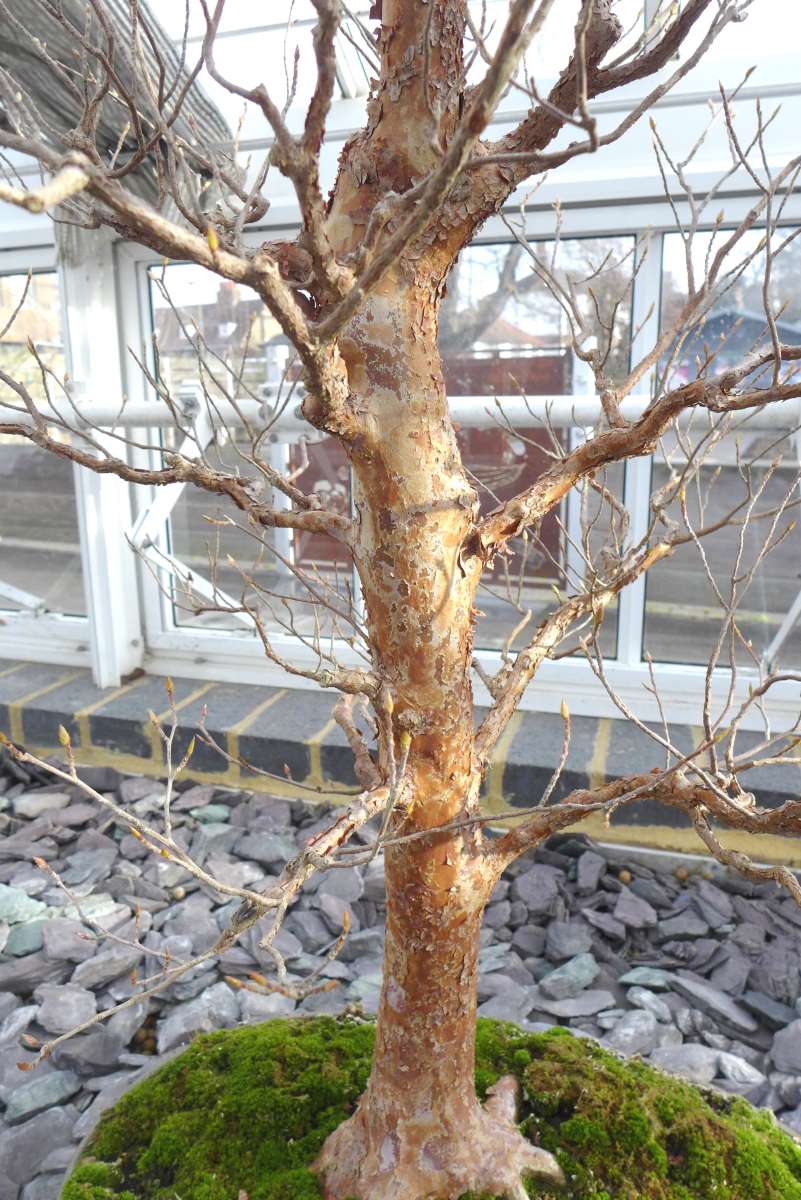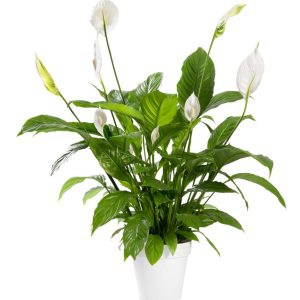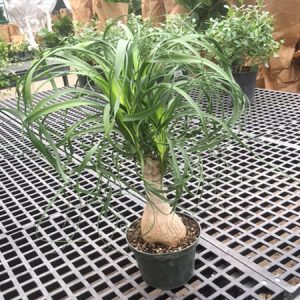Description
Stewartia – Stuartia –
There are 15-20 deciduous or evergreen trees and shrubs, closely allied to Camellias, in this genus. They are found naturally occurring from woodlands in Eastern Asia and Southeastern USA. They are grown for their often colored and peeling, sometime in a camouflage cloth like pattern bark, their elliptical simple, usually toothed, 2-6″ long leaves, which color to bright orange and red in autumn, and their cup shaped white flowers, to 4″ across with prominent stamens, carried singly or in clusters of 2 or 3’s. Use as a specimen.
Grow in moist but well drained, moderately fertile, humus rich, neutral to acidic soil in full sun or light, dappled shade, with shelter from strong winds.
S. monadelpha – Tall Stewartia – This broadly columnar to conical, deciduous tree or shrub from Korea and Southern Japan grows at most 50-80′ feet tall and half as wide, usually less in cultivation. It has smooth peeling red brown bark that flakes away to reveal lighter tones of green or cream patches. It produces ovate, elliptic or lance shaped leaves, 2-4″ long, with hairy undersides and turn orange and red in autumn. In mid summer, cup shaped white flowers, to 2″ across, with creamy filaments and violet anthers, are borne singly or in pairs.
Zones 6-9




